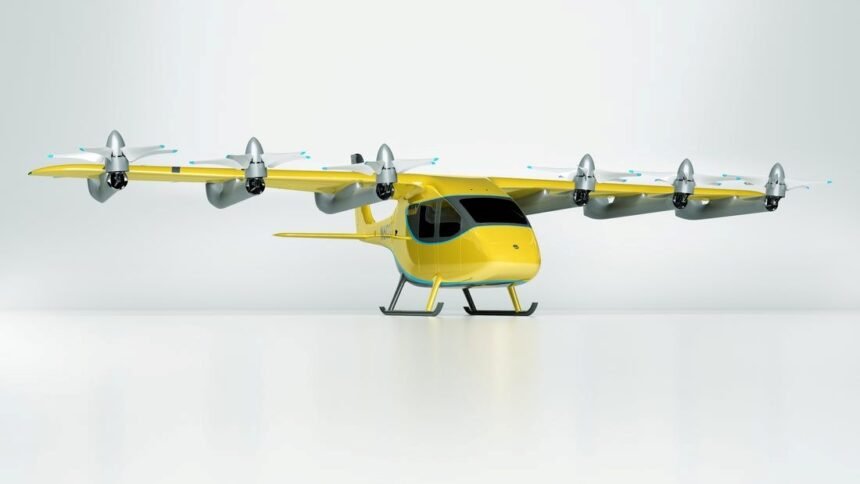Wisk Aero, developer of an all-electric, self-flying air taxi service, is planning to bring its futuristic flight vision to Miami. The company, a subsidiary of Boeing, announced it has signed two Memoranda of Understanding to advance autonomous air travel in South Florida.
The agreements, one with the Miami-Dade Aviation Department and another with the University of Miami’s Engineering Autonomy Mobility Initiative, mark a major step forward in establishing an infrastructure for electric vertical takeoff and landing (eVTOL) aircraft in one of the country’s busiest metro areas. eVTOLs take off vertically like a helicopter and then fly like a regular plane.
“Miami has demonstrated long-standing support for AAM (Advanced Air Mobility), making it a natural fit for future Wisk operations,” said Sebastien Vigneron, CEO of Wisk. “These partnerships are helping us build the entire AAM ecosystem and unlock the full potential of autonomous operations at scale so we can bring safe, everyday flight to everyone.”
Under the agreement with Miami-Dade, Wisk will provide technical guidance to help plan vertiport infrastructure at key county airports including Miami International Airport, Miami Executive Airport, and Opa-locka Executive Airport. The county will integrate autonomous air mobility into broader planning initiatives, including electrical systems, airport development, and airspace coordination.
“This collaboration with Wisk allows us to strategically plan for the future of air travel,” said Miami-Dade County Mayor Daniella Levine Cava. “MIA is the busiest airport in Florida and the second busiest in the country for international passengers, which makes it the perfect launch site for AAM.”
Wisk’s partnership with the University of Miami will focus on joint research and development, including safety, advanced sensors, regulatory frameworks, and next-generation battery systems. The university will also support grant opportunities and provide facilities for collaborative projects.
“At the University of Miami, we are leveraging faculty expertise and cutting-edge research to help make autonomous air mobility a reality,” said Pratim Biswas, Dean of the College of Engineering. “Through our collaboration with Wisk, we are advancing core technologies like advanced sensors and next-generation battery systems that are essential to making AAM safe and scalable.”
Miami joins Wisk’s growing list of launch markets, which include Houston, Los Angeles County, and Brisbane, Australia. The company, a subsidiary of Boeing, has conducted over 1,750 test flights and continues to work with local and national stakeholders to make autonomous flight safe and accessible.
Wisk’s expansion into Miami builds on its active role in Florida’s AAM planning efforts. The company has contributed to state-level reports and guidelines and is a founding member of the Florida Department of Transportation’s AAM Advisory Council.
For its part Miami-Dade and the City of Miami have been national leaders in local planning for AAM, bringing together industry and government. And Wisk is not alone: a handful of companies have already announced Miami will be one of their initial launch sites. The companies say South Florida’s traffic congestion and suburban sprawl make this a prime market for the vehicles.
The offerings: A much faster and environmentally friendly way to get from place to place in the metro area, flying above the traffic, for, say a trip from MIA to the Miami Beach Convention Center or downtown Miami to downtown Fort Lauderdale. Some companies have pledged to offer longer rides, up to 180 miles, potentially connecting South Florida and Orlando, for instance.
The companies haven’t yet been approved to operate air taxi services with eVTOLs yet, but last year the Federal Aviation Administration finalized rules for their operation and pilot training. Timelines vary, but most companies are hoping to launch between 2026 and 2028. All electric seaplanes and eVTOL cargo service are also in the mix.
READ MORE IN REFRESH MIAMI:











